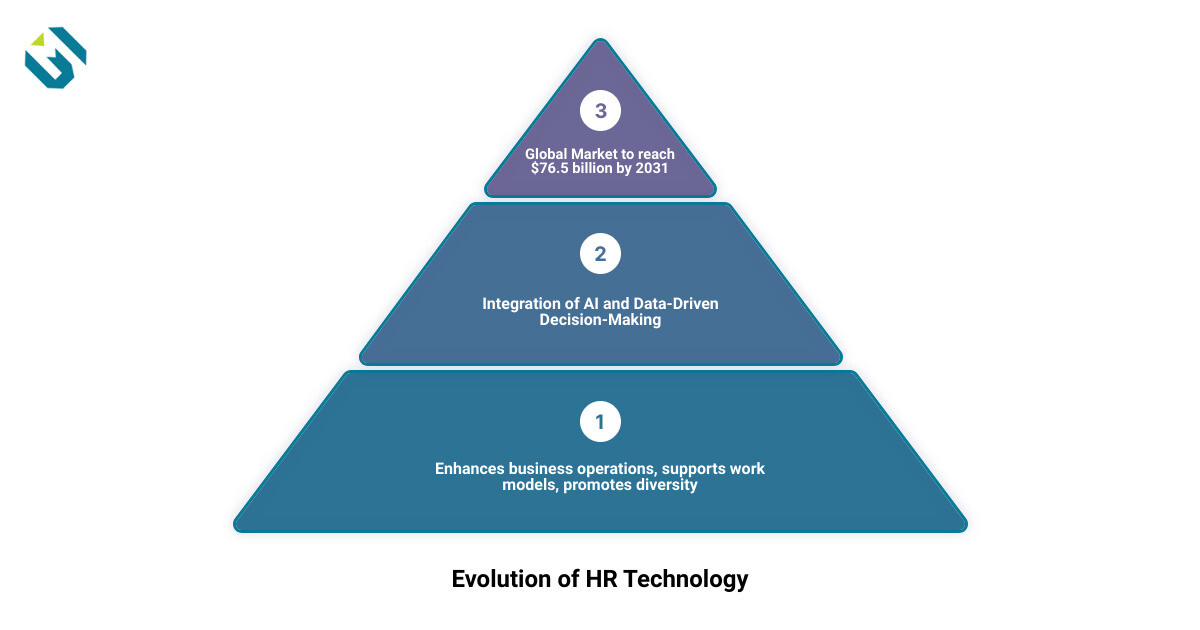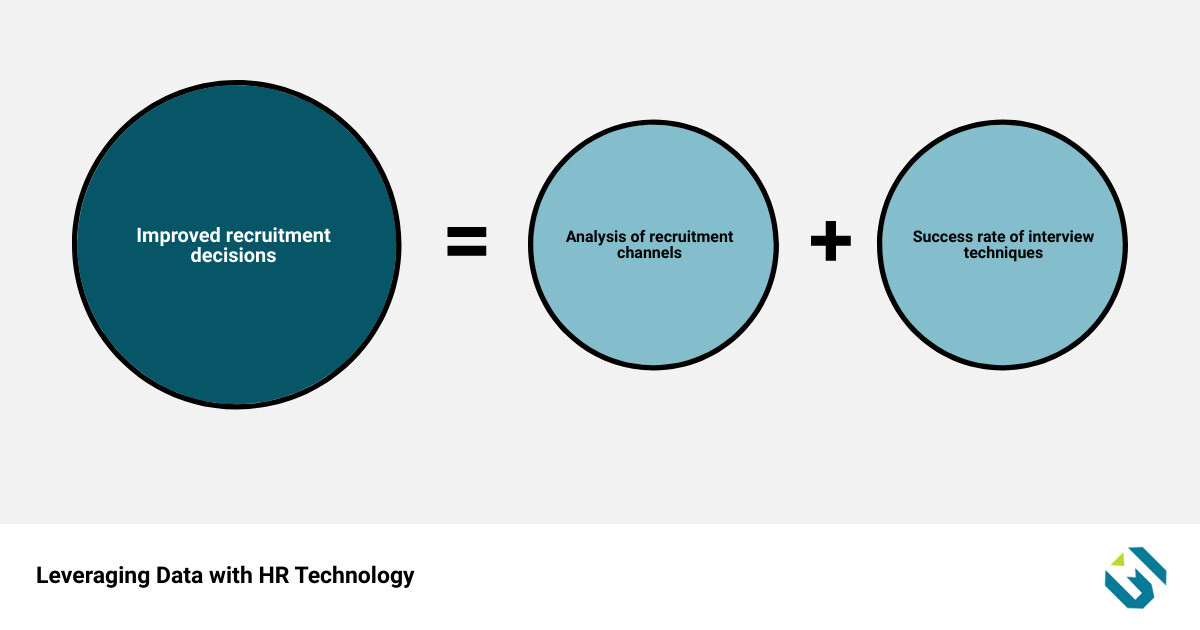Unmasking the world of HR technology exposes a dynamic landscape that has witnessed a significant paradigm shift, especially in the recruitment sector. Now more than ever, businesses are leveraging the power of HR technology to enhance their operations and adapt to the rapidly changing needs of their workforce. Here at GrowthMode Marketing, we’ve observed how HR tech trends are consistently evolving, highlighting a definite shift towards digitization and flexibility.
The advent of more flexible work models, such as remote and hybrid work, coupled with the ongoing influence of the COVID-19 pandemic, has necessitated this shift. Now, HR tech solutions that support these new work arrangements, improve employee engagement, and streamline HR processes are gaining traction. Businesses are also moving away from traditionally centralized HR functions to a “hyperlocal model,” which allows HR to outsource last-mile communication with employees through their managers.
These shifts underline the need for HR tech companies to stay ahead of the curve by offering innovative solutions that address these trends and meet the changing needs of businesses. This could be in the form of HR software that supports remote onboarding and training, or a platform that assists in managing employee performance and engagement in a remote setting.
Indeed, the global human resource technology market is expected to reach a staggering $76.5 billion by 2031. To capture a slice of this growing market, companies must not only have a great product but also employ effective demand generation strategies to stand out from the crowd, reach their target audience, and generate quality leads.
In this article, we’ll explore the evolution of HR technology, its impact on recruitment, and the future trends expected to shape this space.
Key Insights about HR Technology:
– HR technology significantly enhances business operations.
– Trends point towards improving the entire employee experience, upskilling and ongoing learning, supporting different work models, and promoting diversity, equity, and inclusion.
– AI and data-driven decision-making are becoming integral to HR technology.
– The global HR technology market is projected to reach $76.5 billion by 2031.
Understanding HR Technology: Definition and Importance
What is HR Technology?
Shedding light on the term, HR technology (human resources technology) is an umbrella term for software and associated hardware used for automating the human resources function in organizations. This includes employee payroll and compensation, talent acquisition and management, workforce analytics, performance management, and benefits administration. Like an efficient co-pilot, HR tech helps HR professionals streamline time-consuming tasks, such as filing, communication services, talent management, compensation management, benefits administration, performance management, and data storage, organization, and analysis.
In recent years, HR technology has seen rapid development, with large corporations worldwide adopting core HR tech systems from renowned enterprise software companies such as Oracle and SAP. Firms are migrating from their on-premises systems to cloud platforms, such as Software as a Service (SaaS), marking the second generation of HR technology. Simultaneously, small and midsized employers are also moving in large numbers to digitize their human resource functions, commonly turning to SaaS platforms or cloud-based HR technology outsourcing vendors.
Why is HR Technology Essential for Modern Businesses?
At GrowthMode Marketing, we believe that HR technology is not just about reducing paper clutter and administrative work; it’s about managing the entire employee lifecycle. In companies with hundreds or even thousands of professionals, HR tech has become indispensable. With this managerial assistance, HR professionals can focus on improving recruitment practices, supporting managers, and boosting engagement, retention, and productivity.
In a world where remote work is becoming more common than ever, the shift towards digitization and flexibility remains at the forefront of HR tech trends. The traditionally centralized HR function is giving way to a “hyperlocal model,” which allows HR to outsource last-mile communication with each employee through their managers. This trend emphasizes the growing need for flexible and digitized solutions that can cater to a geographically dispersed workforce.
The COVID-19 pandemic has further accelerated this shift, pushing companies to adapt to hybrid work arrangements. As a result, HR tech solutions that support remote work, improve employee engagement, and streamline HR processes have gained significant traction. For companies to remain competitive in such a rapidly changing environment, they need to offer innovative solutions that address these trends and meet the changing needs of businesses.
More than ever, HR technology is essential for modern businesses, not just as a tool but as a strategic partner in achieving business objectives. With the global human resource technology market estimated to reach $76.5 billion by 2031, the importance of HR tech cannot be overstated.
In conclusion, understanding the definition and importance of HR technology is the first step towards leveraging its power. At GrowthMode Marketing, we are committed to helping you navigate the complexities of HR tech to drive growth and productivity in your organization.
The Role of HR Technology in Recruitment
The digital revolution has transformed the recruitment landscape, making it more efficient, streamlined, and data-driven. At GrowthMode Marketing, we believe that HR technology is a game-changer in the recruitment process, enhancing the candidate experience and leveraging data for informed recruitment decisions.
Streamlining the Recruitment Process
The first step to a successful hire is a streamlined recruitment process. With HR technology, we can automate time-consuming tasks like filing, communication, and talent acquisition, freeing HR professionals to focus on strategic activities. As our expert at GrowthMode Marketing remarks, “HR tech does more than reduce admin work—it helps manage the entire employee lifecycle.”
For example, adopting a customized applicant tracking system can standardize job postings, interview scheduling, and hiring workflows for more efficient, consistent results. This can favorably affect workplace efficiency, accelerate training and development, and help drive results in a healthier, more collaborative company culture.
Enhancing Candidate Experience
The candidate experience is crucial in the recruitment process. HR technology can significantly improve each phase of the end-to-end candidate experience, from the recruitment process to the onboarding of new hires.
For instance, during the onboarding process, new employees can more easily integrate into the workplace and gain the training and knowledge needed to thrive for the long term. Employers can also use HR tech to rapidly compare benefit program costs and offerings, and identify benefits that resonate most with today’s job candidates.
Leveraging Data for Recruitment Decisions
Data is the new oil in the digital economy. With HR technology, companies can make data-driven decisions in their recruitment efforts. HR professionals can gather, store, and analyze large volumes of data to identify trends, patterns, and insights that can inform recruitment decisions.
For example, HR tech can be used to analyze the performance of different recruitment channels, the effectiveness of various job descriptions, and the success rate of different interview techniques. This can help HR teams identify what works and what doesn’t, allowing them to continuously improve their recruitment processes.
In conclusion, HR technology is revolutionizing the recruitment process, making it more efficient, effective, and data-driven. At GrowthMode Marketing, we are dedicated to helping you leverage the power of HR technology to attract and retain top talent, drive growth, and enhance your competitive advantage in the marketplace.
Key Components of HR Technology
The world of Human Resources (HR) has been transformed by the advent of technology. Today, we at GrowthMode Marketing would like to take you through the critical components of HR technology that are revolutionizing the way organizations manage their human capital.
Payroll Management Systems
Gone are the days when payroll was managed manually. Modern payroll management systems automate the tedious process of calculating and distributing employees’ salaries. They also handle the complex task of tax withholding across multiple jurisdictions, something that was a significant challenge for HR departments in the past.
These systems ensure timely and accurate payment to employees, reducing the chances of payroll errors that can lead to employee dissatisfaction and compliance issues.
Talent Management Software
Talent management software is another crucial component of HR technology. It streamlines the process of recruiting, developing, evaluating, and compensating employees.
These systems include an array of modules such as applicant tracking systems (ATS), candidate relationship management, employee referral software, and employee assessment software. Each of these tools plays a key role in attracting, selecting, and retaining the right talent for the organization.
Performance Management Systems
Performance management systems are designed to continuously monitor and evaluate employees’ job performance. They offer interactive features that enable continuous feedback, moving away from the traditional annual review process.
Through these systems, employers can optimize the allocation and development of human capital, identify the need for new departments and positions, and foster a culture of continuous improvement.
Learning Management Software
Learning Management Systems (LMS) are platforms that facilitate corporate training and education programs. They enable employers to customize training programs, track completion, and assess employee performance.
An LMS can also offer interactive features such as threaded discussions, video conferencing, and discussion forums, enhancing the learning experience for employees.
Employee Engagement Software
Employee engagement platforms and apps aim to keep workers interested in and enthusiastic about their jobs. These tools offer a variety of techniques, from social media-like posting and commenting capabilities to gamification techniques that make apps entertaining.
Other engagement strategies include sophisticated employee recognition programs, app-based enterprise-wide contest platforms, and software to coordinate volunteer civic projects.
Benefit Management Systems
Digitization has not left the benefits administration behind. HR technology has made benefits information accessible online and has enabled employees to engage with benefits choices more easily.
These systems manage health and disability insurance, vacation and sick days, and have expanded to include corporate wellness and well-being. Some of these software systems even incentivize workers for participating in health-oriented wellness programs.
!Benefits Management System Dashboard
Travel and Expense Management Technologies
Last but not least, travel and expense management technologies simplify the process of managing corporate travel and related expenses. They provide travel services to employees, record related expenses, pay providers, and reimburse the employee through a link to the payroll system.
These systems provide managers with a clear picture of the organization’s spending through automated analytics and reporting.
In conclusion, HR technology offers comprehensive solutions for managing various aspects of human capital. At GrowthMode Marketing, we believe that leveraging these key components can significantly enhance your HR processes, leading to higher productivity, better employee retention, and ultimately, business growth.
HR Technology Trends Transforming Recruitment in 2023
HR technology is not a stagnant field; it evolves and innovates in response to changing workforce needs, technological advancements, and business requirements. As we continue to navigate the complexities of the modern workplace, let’s delve into the biggest HR technology trends that are reshaping recruitment in 2023.
The Advent of AI and Machine Learning in HR
Artificial Intelligence (AI) and Machine Learning are no longer just buzzwords in the tech world. As our expert at GrowthMode Marketing often emphasizes, they are game-changers in the HR landscape. Integrating AI into HR systems can automate routine tasks, thereby freeing up HR professionals to focus on strategic decision-making and human-centric roles.
AI can contribute to various HR processes, including applicant tracking, new-hire training, and benefits administration. It can also enhance data-driven decision making, allowing HR professionals to make informed decisions based on predictive analysis and trends. For instance, AI can help identify patterns in employee behavior or performance, helping managers address issues proactively.
Machine Learning, a subset of AI, can be particularly beneficial in the recruitment process. It can analyze large volumes of data to identify the best-fit candidates for job roles, thereby streamlining the hiring process and increasing efficiency.
The Rise of Hybrid Work Models
The COVID-19 pandemic has accelerated the shift towards remote work, leading to the emergence of hybrid work models. According to a report by Engage Rocket, the traditionally centralized HR function is giving way to a “hyperlocal model”.
This model allows HR to outsource last-mile communication with each employee through their managers, emphasizing the growing need for flexible and digitized solutions that cater to a geographically dispersed workforce.
HR technology has proven instrumental in supporting these new work models. Whether it’s an HR software that supports remote onboarding and training or a platform that helps manage employee performance and engagement in a remote setting, companies need to be agile and responsive to these shifts.
The Importance of Cloud Computing in HR
Cloud-based HR systems are another trend that is gaining traction. These systems offer numerous advantages, including accessibility, scalability, and cost-effectiveness. With cloud-based HR systems, HR professionals can access data and resources anytime, anywhere, making them an ideal solution for remote or hybrid work models.
Moreover, cloud-based HR systems can provide real-time analytics and insights, enabling HR professionals to make timely and informed decisions. They also offer scalability, allowing businesses to scale up or down their HR capabilities depending on their needs.
At GrowthMode Marketing, we are well-equipped to help HR tech companies leverage these trends to stay ahead of the curve and remain competitive. With the global human resource technology market estimated to reach $76.5 billion by 2031, it is crucial for HR tech companies to offer innovative solutions that meet the changing needs of businesses.
As we navigate these exciting HR technology trends, one thing is clear: HR technology is becoming an increasingly critical tool for businesses to attract, retain, and develop top talent.
](https://growthmodemarketing.com/demand-generation-for-hr-tech-companies/): https://growthmodemarketing.com/demand-generation-for-hr-tech-companies/
The Impact of HR Technology on Employee Retention and Skill Development
The wave of HR technology is not only reshaping the process of recruitment but also leaving an indelible imprint on employee retention and skill development. From improving the overall employee experience to fostering continuous learning and supporting various work models, HR tech is a game-changer in today’s dynamic work environment.
Improving Employee Experience through HR Technology
The employee experience (EX) comprises every touchpoint an employee has with a company, starting from the recruitment process to well after their last days. A positive employee experience can significantly contribute to employee retention and productivity. As such, businesses are turning towards integrated HR technology to bolster each phase of the end-to-end employee experience.
For instance, a customized applicant tracking system can standardize job postings, interview scheduling, and hiring workflows, leading to more efficient and consistent results. Likewise, during the onboarding process, new employees can seamlessly integrate into the workplace and gain the training and knowledge necessary for long-term success.
Moreover, HR tech can assist businesses in revamping their benefits programs to stay competitive, identifying benefits that resonate most with today’s job seekers. HR tools can also facilitate employee training, offering learning opportunities through various platforms and resources, thus helping employees hone their skills and prepare for future career growth.
Upskilling and Ongoing Learning through HR Technology
In the constantly evolving business landscape, upskilling and reskilling have become paramount for employee retention. HR technology plays a crucial role in providing employees with development opportunities through learning management software, job rotation, job expansion, and peer coaching.
By investing in learning management, businesses can help employees develop critical skills and understand the company culture better. This not only aids in employee retention but also paves the way for the company’s future growth.
Supporting Different Work Models with HR Technology
The advent of the pandemic has prompted a shift in work models, with remote and hybrid work becoming increasingly popular. HR technology has been instrumental in supporting these different work models, fostering a consistent work environment that keeps workers connected, engaged, and productive.
Implementing tools that promote collaboration, facilitate onboarding and training, and maintain open lines of communication between employees and HR can significantly enhance remote work experiences. Embracing remote or partially remote workforce models can also allow organizations to substantially expand their candidate pool, ensuring a talent-rich workforce.
!Remote Work Models
At GrowthMode Marketing, we understand the power of HR technology in shaping the future of businesses. Leveraging effective demand generation strategies, we aim to help HR tech companies stand out in the competitive market and capture a piece of the growing market.
](https://growthmodemarketing.com/demand-generation-for-hr-tech-companies/): https://growthmodemarketing.com/demand-generation-for-hr-tech-companies/
The Role of HR Technology in Promoting Diversity, Equity, and Inclusion
In today’s evolving business landscape, fostering a diverse, equitable and inclusive environment is more than just a noble cause—it’s a business imperative. But achieving this is more than just recognizing the differences among your workforce. HR technology is playing a pivotal role in not only embracing, but also institutionalizing diversity, equity, and inclusion (DEI) in the workplace.
Using HR Technology to Foster a Diverse and Inclusive Workplace
At GrowthMode Marketing, we believe that HR tech is a powerful tool for promoting DEI. It helps businesses in recruiting, hiring, retaining, and developing employees from diverse backgrounds, ensuring that their voices are heard, incorporated, and provided with equal access to success within the organization.
HR technologies can assist in developing automated skills assessments, gathering feedback on the adoption or effectiveness of employee resource groups, making data-backed decisions around hiring and promotions, determining concrete success metrics for a role, and using anonymous feedback on inclusivity to improve company policies.
Some HR technologies also offer features that support DEI efforts. For instance, they can remove bias from the recruitment process by anonymizing candidate data and automating shortlisting based on skills and qualifications. They can also provide insights into diversity metrics and trends, helping organizations to identify gaps and take proactive measures.
Through the use of HR tech, businesses can cultivate an environment where everyone feels truly included, leading to increased employee engagement, improved performance, and ultimately, business success.
The Role of AI in Promoting Diversity and Inclusion
Artificial Intelligence (AI) is an emerging trend in HR technology, and it’s playing a significant role in promoting DEI. Over three-fourths of HR leaders in companies with 20 or more employees are planning to use AI in the next 12 months.
AI-powered HR processes can help eliminate unconscious bias in recruitment and performance management, contributing to a more diverse and inclusive workplace. For instance, AI can be leveraged for resume scanning and shortlisting, reducing human bias and ensuring that candidates are evaluated solely based on their skills and qualifications.
Moreover, AI can gather and analyze data to provide HR teams with valuable insights into the diversity and inclusivity within their organization. This can help in making informed decisions and implementing effective DEI strategies.
At GrowthMode Marketing, we recognize the potential of AI in transforming HR practices and advocating for DEI. Through our demand generation strategies, we aim to help HR tech companies that are leveraging AI to promote DEI reach their target audience and generate quality leads.
In summary, HR technology, especially with the integration of AI, is a crucial ally in fostering a diverse, equitable, and inclusive workplace. As we move forward, it will continue to shape the way organizations approach DEI, making it not just an initiative, but a core part of their culture.
](https://growthmodemarketing.com/demand-generation-for-hr-tech-companies/): https://growthmodemarketing.com/demand-generation-for-hr-tech-companies/
Conclusion: The Future of HR Technology and Recruitment
In the ever-evolving landscape of business, HR technology has emerged as a game-changer. As we at GrowthMode Marketing have gathered, HR technology is not just about automating routine tasks. It holds the potential to revolutionize the way businesses operate, especially in the realm of recruitment and talent management.
In the future, we expect HR technology to continue to evolve, strengthening its focus on improving the employee experience and fostering diversity, equity, and inclusion. As the trend shifts towards remote, hybrid, and flexible work models, the need for digitized and adaptable HR solutions is more vital than ever. The rise of AI in HR, data-driven decision making, and cloud computing are only the beginning.
Moreover, the role of HR technology in employee retention and skill development cannot be overstated. From upskilling programs to well-being initiatives, HR tech will continue to play a pivotal role in nurturing a skilled, engaged, and satisfied workforce. As Paychex highlights, these investment areas are critical for a healthier, more collaborative company culture.
The global human resource technology market is estimated to reach a staggering $76.5 billion by 2031. This signals a massive opportunity for HR tech companies to innovate and offer solutions that meet the changing needs of businesses. At GrowthMode Marketing, we’re excited to be part of this journey, helping HR tech companies stay ahead of the curve and thrive in this dynamic environment.
In conclusion, the future of HR technology is promising and holds immense potential for transforming recruitment. As businesses continue to adapt to the changing dynamics of the workplace, HR technology will continue to evolve, offering innovative solutions to meet these emerging needs. The role of HR technology in shaping the future of recruitment is only set to increase, making it an exciting space to watch for years to come.
Remember, success in this increasingly competitive market is not just about having a great product. It’s about leveraging effective strategies to reach your target audience and generate quality leads. And that’s where we at GrowthMode Marketing come in. Our expertise in demand generation can help your HR tech company navigate market trends, drive growth, and capture a greater share of this booming market.
As the future unfolds, we are committed to staying at the forefront of these trends, providing our clients with the insights and strategies they need to succeed. The future of HR technology is here, and we’re excited to be part of it.










